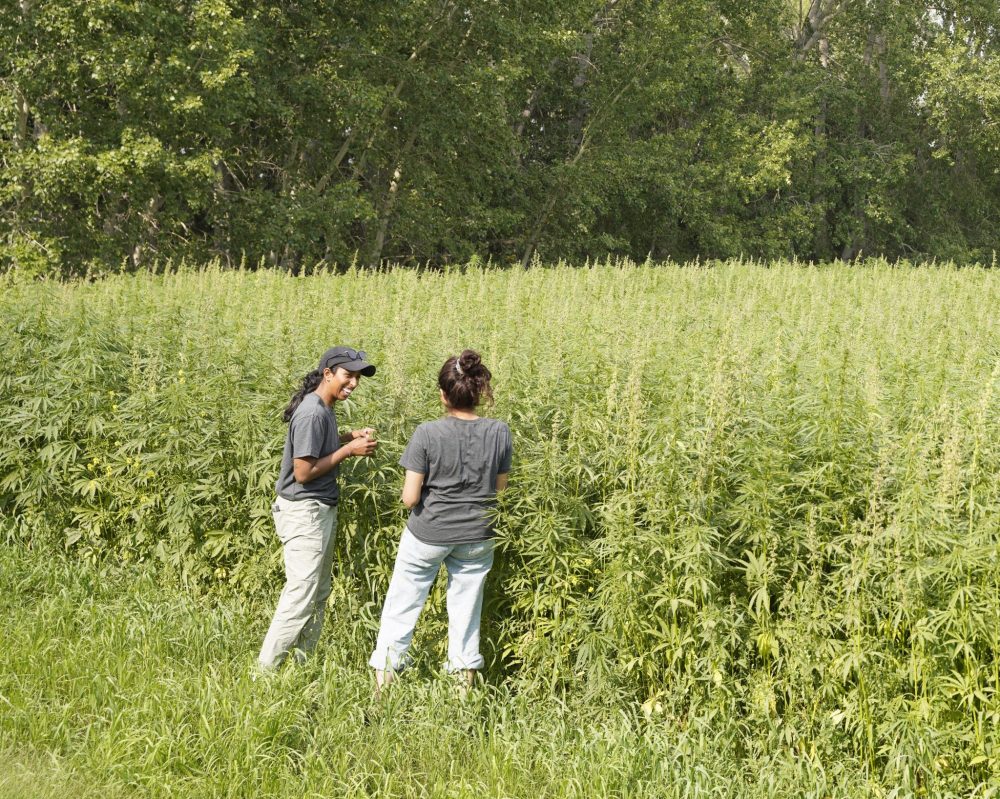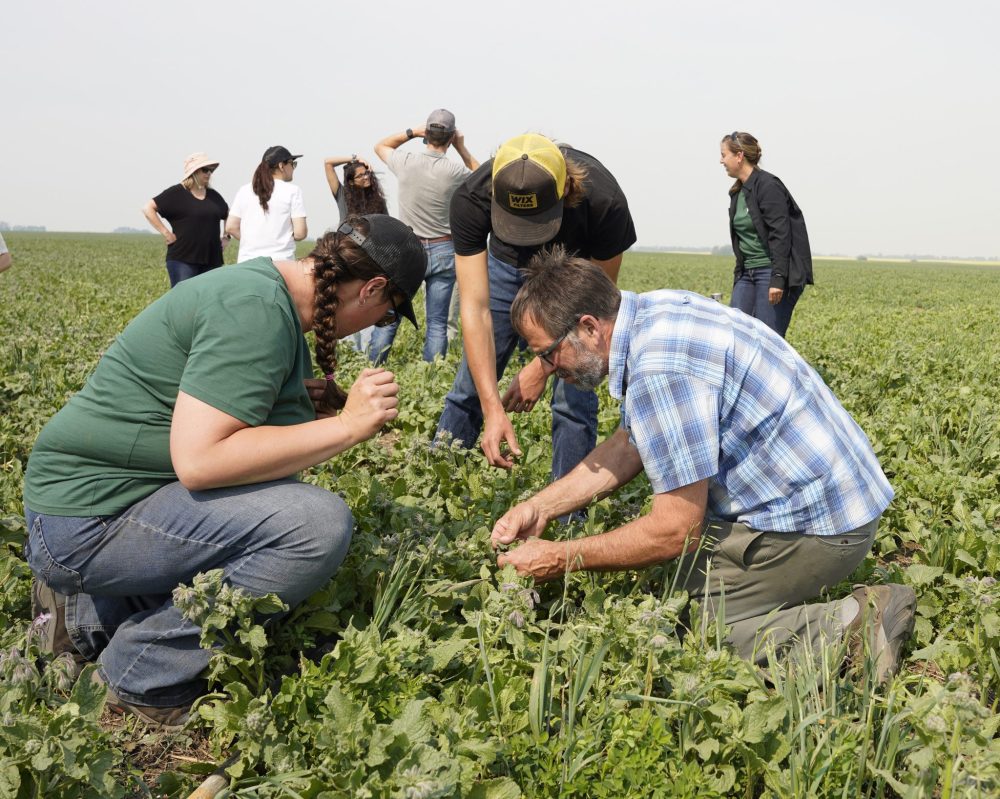Canadian Organic Growers expand program to prairies
Advertisement
Hey there, time traveller!
This article was published 25/06/2024 (281 days ago), so information in it may no longer be current.
While Vita may not be the hub of organic farming in the country, it serves as a great home base for Dorthea Gregoire, who is the program manager for Canadian Organic Growers in the prairie provinces.
Gregoire says her main focus since joining the non-profit group a year ago, is to bring people together to explore the possibility of expanding regenerative organic crop production in the western part of the country.
At the same time, Canadian Organic Growers is working with existing organizations promoting regenerative farming practises, she said.

The province currently has only 150 certified organic growers, but her organization supports not only certified growers, but also those who would like to follow organic growing practices without immediately becoming certified.
Canadian Organic Growers is a national non-profit organization supporting organic, ecological, and regenerative farming practices, Gregoire explains. The focus is advocacy and education.
Canadian Organic Growers deals with both large and small farms, and in Eastern Canada, organic producers are marketing crops from as little as one or two acres.
Gregoire, who had previously worked for the Seine/Rat/Roseau Watershed District for nine years, says her own background had a huge impact on her career choice. Growing up, her parents were organic market gardeners in the 1990s, though they were not always certified organic growers, ecology became a natural study path for her.
Gregoire, who has a PHD in entomology from the University of New Brunswick, says she was happy to have had the opportunity to move back to Manitoba in 2013, when she was looking for a job in her field.
She had already been working for the watershed district when she finished her thesis in 2015 and had been going back and forth to the Maritimes while completing her doctorate.
Gregoire says that one of the great things about working here was that she had the flexibility to make the job her own. Aquatic invertebrates are her thing, and that fitted into the conservation and watershed district’s mandate of water quality.

That involved taking all the technical info and using it on the ground to assist farmers, local governments and landowners in general.
In her new position with Canadian Organic Growers, her expertise as an entomologist, will again prove to be most helpful, as the organization works on a social media campaign dispelling some of the myths about insects and arachnids that are so prevalent in this age of social media.
It is important to have specific knowledge on insects and how they can be a benefit for gardeners, for they are not just pests to be eradicated.
Spiders, though not an insect, were always seen as an unwanted pest and were sprayed relentlessly. In the past, the rule of thumb was to spray everything, Gregoire said. That included the spider, which is helpful in destroying unwanted insects, was killed along with other good insects that aid in the growing process.
People are not aware that wild bees nest in the ground and are constantly being killed by the spraying of crops, Gregoire added.
Gregoire says she will be working with the COG team on the social media campaign, offering her expertise as an entomologist.

“Everything in my experience overlaps.”
And it was her experience, working with the watershed district for nearly a decade, that led to Gregoire’s decision to switch gears somewhat to become involved in a national program.
Living in Vita, Gregoire is able to work remotely with teams based in Saskatchewan and Alberta. While many of the 7,000 organic growers are located in Eastern Canada, the organization was looking for someone to work with growers in the Prairie Provinces.
“The national program drew me. With the watershed district, my focus was just Southeast Manitoba, and with COG, it is prairie-wide as part of a national program.”
Canadian Organic Growers started expansion to the prairie provinces three years ago with a regenerative organic oats project in Saskatchewan and has since expanded to Alberta, and now has a presence in Manitoba as well.
While, currently the program’s major focus is regenerative organic oats, hemp is another crop that lends itself to regeneration and is grown organically. It does not need as much weed control, as the plants themselves are tall and choke out weed growth.
“The big challenge for organic growers is not spraying and how to control weeds without pesticides or excessive tilling.”

Gregoire is responsible for the Regenerative Organic Oats program in all of the prairie provinces. Organic oat growers are producing the cereal crop both for livestock feed as well as human consumption. It started as a pilot project, supported in part by one miller and two organic food brands in response to the growing trend of consumers wanting to know more about how their food is produced.
There is certainly more interest across the country, and currently all participants in the western Canadian Organic Growers program are growing oats, but the program is open to other crop growers as well, Gregoire said.
“There are lots of links between production, nutrient diversity, nutrient density and health. People are interested in what they are eating and the overlap between human health and animal health is becoming bigger and bigger.”
